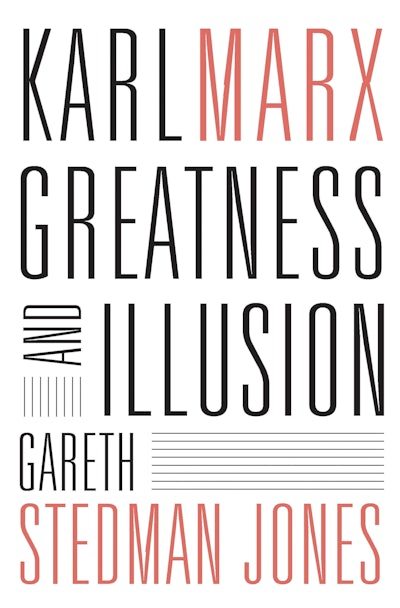In the opening line of Michael Kazin’s article Prophet and Loss, the author asks, “Does Karl Marx still matter?” He directs the question to those readers interested in Gareth Stedman Jones’ new book Karl Marx: Greatness and Illusion, and addresses the question in a book review-esque article.

Both Kazin and Jones acknowledge Marx’s failures to describe the workings of capitalism, but highlight his ability to understand the dynamic upon which capitalism worked. Kazin writes:
Where Marx did excel, according to Stedman Jones, was in his vivid and lavishly detailed descriptions of the miserable lives of ordinary English workers, which he had spent years researching in the British Museum. He thus became a pioneer in the systematic study of social and economic history. In other words, Marx achieved greatness only when he set aside his theoretical illusions and stuck to the facts, exposing a cruelly oppressive system. This may be the kind of conclusion one would expect a social and economic historian to make, although Marxs theory of how capitalism supposedly works has surely stirred more people over time than the richness of his empirical prose.
He concludes, “Marx the materialist does not matter as he once did. But the Marx who imagined capitalism liberating humanity from the bonds of tradition still might.”
Read the full article here at The New Republic.

5 Comments
Anto Rondon posted on September 26, 2016 at 3:35 pm
I believe it is correct that Marx is only–or mostly–remembered today as the influencer of Communism and Marxism-Leninism, that is, social or political movements. His more philosophical or historical materialist side has been overshadowed precisely by the great spread of his social thoughts. This is not only interesting, but also sad, in a way. Those who oppose his social-political principles could easily agree with his more materialist side, and vice versa, but I guess they will never know.
Kassandra posted on September 26, 2016 at 5:39 pm
The “Communism” during the Cold War was not even the true Communism Marx preached throughout his life. By taking a closer look one can see that the countries that twisted his ideas to their own use created a fearful stigma still felt today.
Yanni posted on September 27, 2016 at 12:58 am
Of course Karl Marx still matters. Communism is still greatly represented throughout the world with many people and political leaders identifying as Marxist-Leninists. So long as this is the case, we should use Marx’s works to understand his ideas and beliefs in order to understand and amend political ideologies in the 21st century.
Theresa posted on September 27, 2016 at 10:40 pm
Right about that, Kassandra. The Communism which Marx tried to promote in his writings was far from what we, most of us, consider to be Communism. His time was a time when a “caste” system existed among the wealthier “bourgeoise” (at least by practice if not by name) and the working class. The alienation of the working man caused him to feel unsupported by society, unappreciated at the workplace, and most importantly unable to even set foot on the stepping stone of his “bourgeoise” contemporaries. He was restrained and work would not do more than put food on the table. In this society, Kant pushed for more equality for the working class and the overthrow of the “bourgeoise”. What he proposed and argued was indeed different than Cold War Communism. Much more, perhaps, than Marxist Communism the “new Communism” prevented the socioeconomic, political, and educational growth of ALL “classes” so that not only did these classes no longer exist but everyone’s progress stagnated under a supreme government.
It was definitely not beneficial for the working man. Or any man. Or any person.
Theresa posted on September 27, 2016 at 10:43 pm
Marx talks about Communism the way it “could be” and perhaps “should be.”